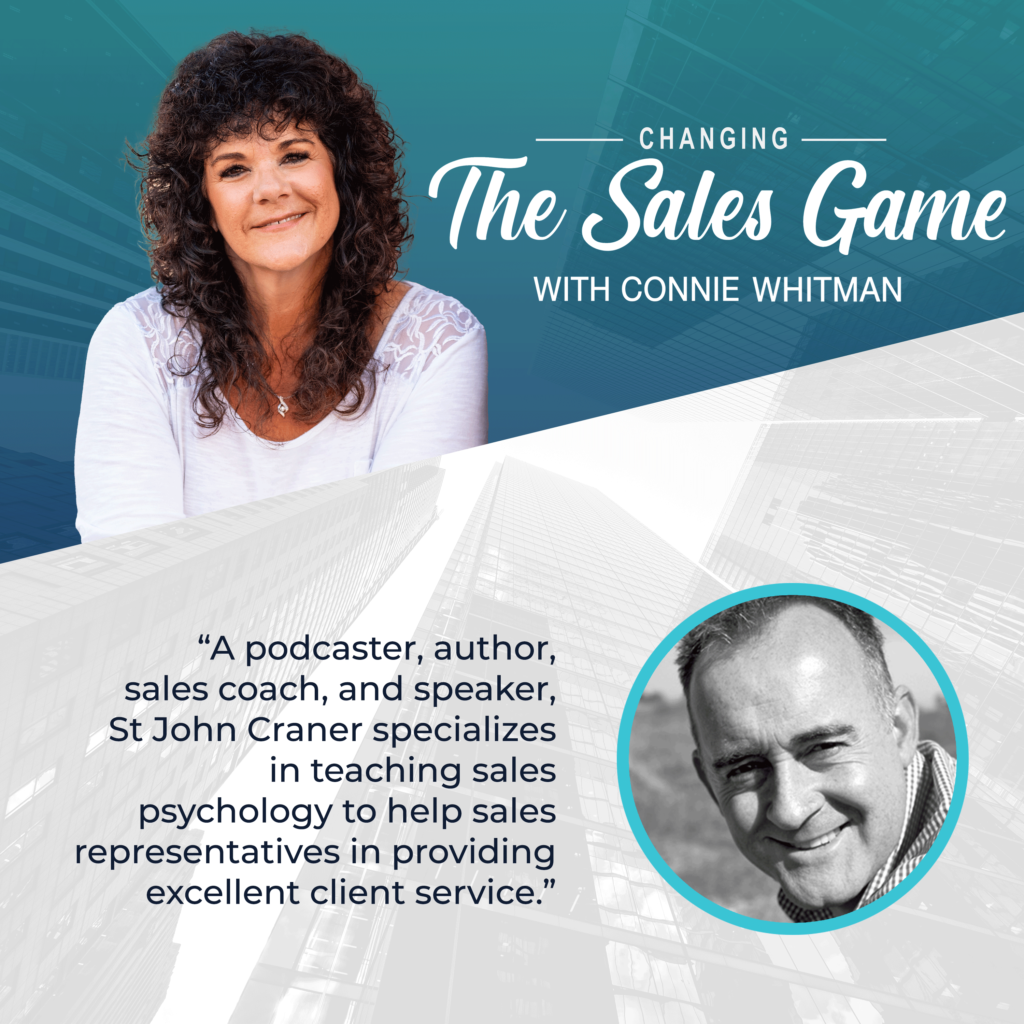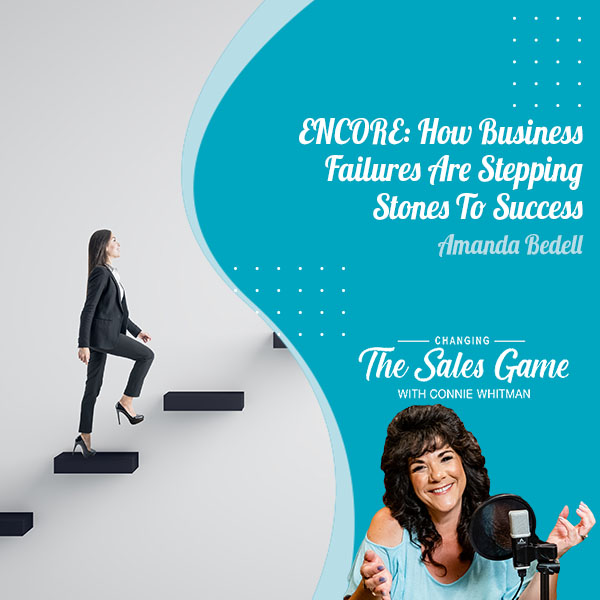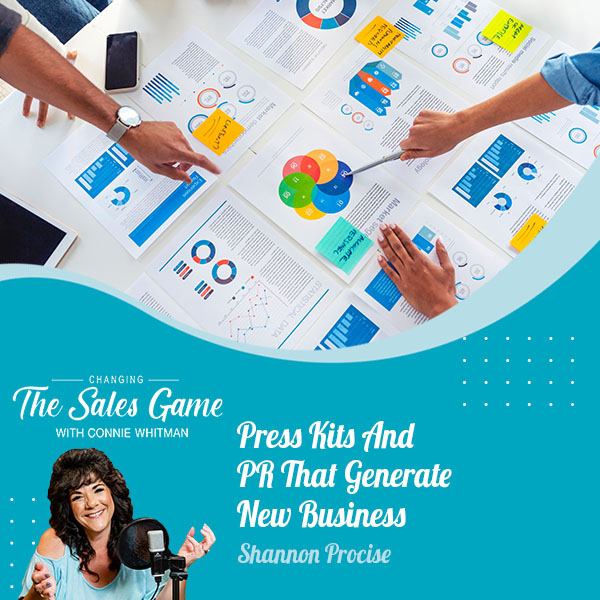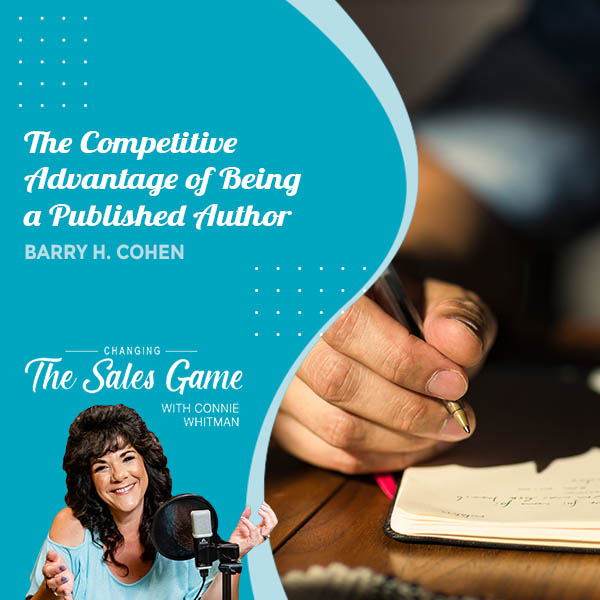It’s not about having the right opportunities. It’s about handling the opportunities right.Mark Hunter
Check Out These Highlights:
There are so many essential steps in any sales process you use. It’s important to handle each step of the process as efficiently and refined as possible.
Because there are so many moving parts, it’s also essential to create good habits that are effective and repeatable so you can easily and quickly scale your sales results.
Why Psychology Is A Sales Superpower With St John Craner (EP. 119)
As always, I love that you’re joining us. I hope as you tune in to the show, you got to feel my passion about changing the word “sales” from that icky manipulation slime vibe to you have to start selling from a place of love, care, and respect. I know that the words love and sales are weird for people, but if we truly come from our hearts, the magic starts happening.
To help you on your journey of changing your mindset, I have a free gift for you. You’ll get two reports. One will spotlight your natural communication superpowers. You want to lean into that. That’s how you are showing up for people naturally. On the flip side, you’ll get a report on your lowest score as well. That shines a light on the people that you probably find the most difficult to communicate with. I’ll give some insights into those reports as well. Two reports, one link. I hope it helps you manage your change in mindset with sales.
My motivational quote today is by Mark Hunter. Mark says, “It’s not about having the right opportunities. It’s about handling the opportunities right.” There are so many essential steps in whatever sales process you’re using. It’s important to handle each step of that process as efficiently and as refined as possible. There are so many moving parts. It’s also essential to create those good habits that are effective. Here’s probably the more important word, repeatable, so you can easily and quickly scale your sales results, income, and all of those pieces of the puzzle.
I’m excited to chat with my guest, St John Craner. St John is an author, podcast host, and Founder of Agrarian based in New Zealand. He and his company specialize in training and teaching sales teams how to perform at a higher level using human-centered psychology. He’s going to share with us the top ways to increase your leads and sales by implementing your buyer’s mindset and tapping into the psychology of selling. St John, thank you so much for being on from literally across the world. I’m excited about our conversation.
It’s great to be here, Connie. I’m glad we got here.
About St John Craner:
St John is an author, podcast host, and Founder of Agrarian based in New Zealand. He and his company specialize in training and teaching sales teams to perform at a higher level using human-centered psychology. He will share with us the top ways to increase your leads and sales by implementing your buyer’s mindset and tapping into the psychology of selling.
How to Get in Touch With St John Craner:
We’re here, my friend. There were some weather issues for poor New Zealand. You guys got hit pretty hard. Prayers and love coming out to you guys because I know that road to recovery is not a shorter quick one. We’re sending you a ton of love there.
I appreciate it.
Why People Are Reluctant With Sales
Let’s jump in. Why do you think most people hang up with sales? Like my intro, that word sales is icky.
It kicks up that connotation of that yuckiness and that fast-hand rubbing. It comes down to people’s sense of self or self-identity and self-worth. None of us crack open to a barbecue and go, “I’m a salesman” or “I’m a salesman person.” That’s because so many sales experiences you or I face are so poor. They’re so bad, and we’re burnt and bruised by that process. We don’t want to be associated or our identity doesn’t want to be associated with sales. It’s something that’s maybe below us and below our sense of self and our sense of self-worth. Sales have a lot of those yucky connotations. That’s why so many people are reluctant and resistant.
Biggest Mistakes Salespeople Make
It’s the psychology behind it. As I started, it’s our mindset and that perception. You’ve said it yourself, but we’ve all been in that sales pitch where you’re thinking, “This is horrible. I can’t believe this guy is barking at me or vomiting on me what their solutions are. He or she doesn’t even know what I’m about and what my business is about.” We’ve all been on the receiving end. What are the biggest mistakes that you see salespeople make in your travels?
The first one that is very obvious to the buyer is assumptive selling. It leads right into what we just talked about opening up the show. If you are being sold to, that salesperson is assuming that they have the sale. What happens is that threatens the buyer’s sense of safety. We’re going straight into the psych here. When you don’t feel safe, you’re not going to be vulnerable, you’re not going to open up, and you’re not going to provide your buyer motives. You’re not going to be able to follow a line of questioning that is deep, credible, enriching, and useful for you as a professional salesperson because you’ve made your prospect feel unsafe. What happens is when you assume the sale, you are breaking the psychological safety of your buyer.

Forty years in sales, when I first learned sales and when I was being trained, it was the assumptive close. My husband and I talk about this a lot because I started in insurance here in the United States. I remember we had gone to a conference. I had won a conference. I had done well, and this one gentleman had won a million dollars, this and that. He was winning all these awards. I am an extremely respectful person and I didn’t stand as they were applauding. We get back to the room and my husband says, “You didn’t stand up. That was so not you.” I go, “He is a dirtbag and he’s a thief. He would sell a policy to his mom to make a dollar. He’d sell a soul to make a dollar.”
Fast forward, security is regulated here in this country. You’re on an email list and you get lists of people who have done unsavory things. About five years after that conference, he was in jail for unsavory behavior. Isn’t that funny how when I was being trained that I was like, “That doesn’t feel right?” The person didn’t feel right to me in my soul. I was offended that people were applauding for this unsavory dude. It’s part of how we’re wired, but we can change that mindset as well.
I was thinking about and picturing you at that conference. It’s also that sensory thing. I’m not getting to energy vibrations, vibes, and everything else, but when we were cavemen and cavewomen, we didn’t talk. The nonverbal or body language was massive. Having massive sensory awareness of how you are coming across as a salesperson to your prospect and picking up on that body language is absolutely massive. Ultimately, they’re going to give themselves away. Even if they don’t say it, they’re going to say it by their micro-expressions. I’m not a body language expert but I know enough to harm myself less.
You can pick up on the vibes. If you are dominating or overtaking, and you were talking about the verbal vomit, I call it the show-up throw-up routine. Technical salespeople suffer this curse of complexity bias. What they’ll do is they are so keen to assert their technical prowess onto the prospect. They just talk and talk, and they lose the sale and the prospect because they don’t read the room. This is why we don’t send engineers out to sell.
That’s exactly right. Isn’t that funny? They think they have to give you every last detail, dot every I, and cross every T. That’s not a conversation. That’s that technical. We get caught in the minutia or into the weed. It’s very hard to pull out of that.
I’m talking about the psychology of the sense of self. Your guest, James Clear, talks about identity. I’m hearing a lot of that around the sense of self and identity being a powerful motivational force. What we’re doing is a lot of people have a technical quotient but they don’t have that emotional quotient and the emotional intelligence that Dan Goldman talks about. It’s very important that like us here, we got to have a conversation that is conversational, not technical. If we go technical, we’re going to lose everyone down the track. With that EQ, you can be bright as a button, but if you can’t read the room and you can’t read the basic signs and signals that that buyer is sending you, then you’re not going to make a sale.
Psychology Is A Sales Power
It goes back to that quote, “People don’t care how much you know until they know how much you care.” Let me know that you’re in it for me, meaning the prospect or the client, and that you’re not just in it for your paycheck or your bank account. There has to be skin in the game from their perspective of how we’re going to serve. This whole concept of psychology fascinates me. If I went back for my PhD, it would be in Psychology and nothing to do with business. I think psychology has everything to do with business because we’re in business. We’re talking to other humans. It’s all about psychology. Why have you found that psychology is a sales superpower force, but most people don’t even know it?
If you are in sales, you should be fascinated by people, human behavior, and the laws of human nature. Equally, understanding psychology can be used for good and it can be used for bad. I’ve had a story of people who use it badly. In the good sense, I’m one of the good guys or I hope I am. What we’re trying to do is we have to serve before we sell. If I could have this tattooed or if I could say, “You serve before you sell,” I could lead this now and say, “That’s the value,” if there’s one piece of advice that listeners take away.
I train in the agricultural and agribusiness sector where farmers are hard-ass, stoic, and extremely sales-resistant people who have huge agency autonomy about taking control of their things. They don’t like to be controlled, which a lot of salespeople try to do. We serve to sell. When we serve the best interests of our prospects rather than the best interests of ourselves, we will make more sales. It will take longer.
We serve to sell. When we serve the best interests of our prospects rather than the best interests of ourselves, we will make more sales. Share on XConnie, I know you’re big time into this because I’ve been listening to your podcast and some amazing guests you’ve got on. It is all about human-centered selling and it’s around psychology. If you want to sell more, you have to understand the basic psychological principles behind human behavior if you want to influence, persuade, negotiate, and most importantly, motivate your buyer to buy. They’re already motivated. You just have to find out what motivates them.
You said it, it’s the long game. This is why I think sales gets a bad rap because if I meet with a client or a prospect, and they clearly can use me but they have a bunch of other stuff they’re working on, I’ll say to them, “Yes, I can help you. Yes, you need me. I’m glad you found me.” You are not ready for me yet because you have X, Y, and Z that you’re focused on time and money. If we start working together, you’re not going to move the needle because there’s only so much time in a day. When you’re learning, there’s only so much brain bandwidth that you can energetically extend. We can do these little pieces of the puzzle, so I’m still in their orbit, and then we’ll start in 3 weeks, 5 weeks, 6 months, or whatever it is.
I’ll tell you, 100% of them come back because they’re in my pipeline. I’m still engaged with them. “How’s it going? I saw your post. That was such a good post.” Because I’m interested, it helps me get to know them even better and see what they’re doing. That then helps me create their sales process even more effectively because now we’re intimate. I don’t mean that in a weird way, but I’m intimate with what they’re doing. 100% sales occur.
That’s the long game where people try to push now and the person gets offended where they’re like, “I am never buying from you because you’re disgusting. You feel icky. I need to go take a shower now.” With me, they’re like, “I’m ready to give you my money.” I’m going, “You’re not ready for me yet. That’s my reputation. We can do this going down the road.” Do you see if we’re in it for the long game or our pipeline is always full?
That’s a really important point you made because a lot of people might go, “That’s easy for Connie because her pipeline is full.” What Connie has done is put herself in a position of power where she got plenty of prospects. I can’t remember that Mark Twain quote but it was more around, “You should never be at the mercy of one person who is deciding if they’re your option and they make you a priority.” What we’re saying in there in a fumbled way is no one gets married on the first date. Eighty percent of sales get made in the eighth to twelfth interaction. I don’t talk from personal experience here, but if you don’t get married on the first date, it wouldn’t create a great marriage. You need to nurture.
All the good things you talk about, Connie, in terms of nurturing and giving before getting, thinking, being conscientious, and showing through your actions and your behaviors. In rural or in farming where I train here in Australia and New Zealand, they watch you and your whole character. They want to eyeball you. We call it the sniff test. It’s a colloquial term. They will eyeball you, and they will look at you and your character.
I have to go to Australia in a couple of weeks to talk at a conference. I’ve got another big client that I need to go and see. He needs to see me. I need to go and see him on his farm. It’s going to take me a while to get there because he’s in the middle of nowhere. It’s about eight hours drive. Australia is pretty big as well like the States, surprisingly big. He wants to take me all in. That character, you give yourself away by the things that you do.
I think it was Sir Andrew Carnegie’s quote. He says, “I do not watch what men say. I watch what they do.” I know it’s a sexist term, but you get the gist. If you want to understand people’s priorities and where they’re coming from, just watch what they do and watch their behavior. This is why psychology is so important because we are signaling to each other all the time what our drivers and motivators are, even though we might not be expressing them.
Psychology is so important because we are constantly signaling to each other what our drivers and motivators are, even though we might not be expressing them. Share on XFifty-five percent of our communication is through body language, and thirty-eight percent is through tone of voice. Ninety-three percent of how we’re exchanging that communication is in words. We think we have to say the perfect thing and have the perfect pitch. To me, that’s a load of crap. Until you get in front of that person and you feel their pace, energy level, and all those things, you don’t know how you’re going to deliver it until you’re present at that moment. That’s the other thing. I think we come in with our preconceived notions instead of sitting back.
You should be prepared with questions. I’ve done the research for the company, and all of that. Don’t get me wrong. I’m not saying go in and wing it. Once you’re prepared, you go in, you’re locked, loaded, and ready, you sit back, you ask your questions, you take your notes, be present with that client, and then you ask those follow-up questions, the follow-up questions is the active listening. It’s not all of the eight questions I had prepared in advance. The real meat is the follow-up questions that I’m asking based on what my client or prospect has said.
We forget. We think we go in and go, “They answered my question. Next question.” We’re not really listening, so we can’t dig deeper. You said it at the onset. We’re not digging deep enough intimately, not in a weird way, but to understand what their pain points are, what their situation is, and what their struggle is. if I’m a good match to help them or should I introduce them to someone else in my network that can help them with whatever the situation is.
Conversation, Not Interrogation
I’m going to jump in here because there’s something that you said that was very important. It has triggered a point for me. When I trained my teams, I said, “Your prospects don’t want an interrogation, they want a conversation.” Interestingly, the best way you give yourself away is by the quality of your questions. You’re absolutely right. It’s exactly what Connie is saying. You must plan and prepare because when you plan and prepare, you profit and you perform.

We teach prequel plans and all those things, but you don’t go over the checklist in a little white lab coat going, “I’ve got to ask some of my sales questions.” We want a conversation. We don’t want the interrogation. Ultimately, the person that asks the questions controls the sale. Let me give you more for your audience because this is an important point. Chat show hosts like Oprah, Larry King, or whoever you’re into, forget the politics. What do these chat show hosts do with their guests? They do it really well and it allows the guests to open up.
I think after they ask their question, it’s a couple of things. They usually tend to lean in a little bit showing their body language that they’re engaged and it’s time for the person to respond. They make eye contact and they nod their head. They’re open to what the response is. Typically, they’ll have follow-up questions based specifically on what that guest has just shared.
When you watch your chat show host and also the best journalist, they put their guests at ease. What happens is then Oprah, Larry King, or some of the people down here go, “How the hell did you get that story? How did you break that one? How did you get that scoop?” This is the equivalent of sales. What we’re doing is we’re unearthing or surfacing insights by asking good questions.
I’m showing my age here a bit. I’m English. My parents are from the UK. There was a very famous BBC interviewer called Michael Parkinson. He sat people down on the couch and asked them how are they. He would sit them down and they were so relaxed. They would open up like there weren’t any cameras around, and you just feel like you’re watching them. They told him things that they would tell no one else. This is why these guys get the scoop.
This is why good salespeople can converse and have these emotional questions where they make their prospects feel safe by asking good questions. They ask the questions in the right way. What we have to remember is when we meet a prospect for the first time, maybe it’s not referred or it’s not warm, and it’s outbound, cold, and canvassing. What is the psychological state they buy? They are adrenalized because they’ve been burnt and bruised by shitty sales experiences.
When we go into the stores like Best Buy and they go, “Can I help you?” The first thing you do is block it and you go, “No, I’m just looking. Thanks.” We’re doing that psychologically to protect ourselves from loss, which is what Daniel Kahneman quotes in his brilliant, Nobel Peace Prize-winning book, Thinking Fast and Slow. It’s the Law of Loss Aversion. We are protecting ourselves from loss. When we go into a sales situation and we think someone is trying to sell to us, we protect ourselves. That protection mechanism comes on. In an adrenalized state, you’re not going to make any decisions. You are in protection mode.
We want the psych here for the guys and girls. It’s actually self-preservation. What they’re doing is they are preserving themselves and protecting themselves from perceived loss. When we meet shitty, lousy, and poorly-trained salespeople who are not professionals and just reps, they are selling to us because they’re serving their needs, not us. We shut down, we protect, we push back, and the shutters go down. This is why it’s important that we signal safety through the quality of our questions. That’s a massive rant there but lots in there. I see this mistake being made all the time by poorly-trained sales professionals.
I do a workshop. It’s a 90-minute free workshop and the topic is Eliminate the 5 Layers of Buyer Resistance. It’s exactly what you’re talking about. Until we earn their respect and trust, they’re looking at us like, “I’m waiting for the other shoe to drop. Where’s the pitch?” They’re testing us until we break down those barricades, and then they’re like, “You’re different than anyone else.”
I want to go back to what you were saying about the people who are being interviewed by these experts that are sitting on couches going, “How the heck did you get that?” They’re making people comfortable. That is such an art. I’m sure this happens to you because you’re lovely to talk to. You have this very open energy about you.
People tell you things. I’ve had clients say to me, “I can’t believe I’ve told you that.” I say, “It helps me to understand, so thank you for sharing and being vulnerable with me. It allows me to do a better job for you. Thank you for feeling safe with me.” I say that to my clients and prospects because they’re sharing, “I can’t believe I just told you that.” That’s trust. You could do this fairly quickly by being present and interested. Not making this whole engagement about you or about me. It’s about my guest or my client’s guests, whatever it might be.
Differentiating Yourself As A Sales Professional
It’s easy to differentiate yourself as a sales professional. You just have to be everything that others aren’t. We don’t need to bore the ocean on this, Connie. It’s pretty simple. If they’re shitty and they’re self-serving, you need to be completely reverse. Whether you’re talking about marketing yourselves, we zag when they zig. We do the complete opposite.
Here’s the thing. I’ll drop this one right now. The problem with sales is selling. The more you try to sell, the less you will sell. If you stop selling and you started serving the needs of your prospects by being deeply curious, planned, prepared, signaling safety, and saying things like, “It’s good to catch up with you. I’ve got a few questions to ask you because I want to qualify whether we can help you or not. Does that sound okay?” I’m immediately signaling to you that I’m not here to sell you, I’m here to qualify with some permission-based questions to find out whether we can help you or not. Until we do that, we have no idea whether we can win a position to help you with your specific problem.
The problem with sales is selling. The more you try to sell, the less you will sell. Share on XIt’s funny because there’s that old adage, “The more you give, the more you get.” I think you’ve lived your life this way, St John. For me, I always give before I ever ask for anything. What ends up happening, you live off of referrals. Your business grows because all of a sudden you have this explosion of, “You need to meet this person. Can you speak here? Can you do that?” You’re invited to places because you’ve earned that position, but you have to serve. The getting is exponential. It works. The equation works. I don’t know why everybody is not doing it.
The other thing there is you know as a professional as well that sales are not going to come any easy. We’ve got algorithms, Amazon, buying groups, buying clubs, PriceMe, and PriceSpy. Commoditization is rife. Often the salesperson is the product. This will alarm sales managers because they’re like, “I’ve got salespeople and they’re the only differentiator. If they lose me, they’ll hold me to ransom and they’ll take all my customers with them.” That’s not what I’m saying. We have mitigation strategies in place for that.

Sometimes the only point of difference, if you’re selling more of the perceived commodity product, is the actual person selling it. I certainly know in rural, agribusiness, and farming, they buy you 100%. What are you about? What do you believe in? They are watching you a hawk literally because farmers don’t say much. Men and women have very few words. They are watching you and soaking you inside out. They’re going, “I’m watching you. I’m going to see how you go. You got to keep turning up. You got to keep being consistent and persistent, not insistent.” There’s a big difference there.
They are in control. They farm the land because they want to be their own boss. They are their own men and women. They are in charge of their life. They score incredibly highly on the attributes of agency or autonomy. They don’t like to be told what to do because if they did, they’d go and work in an office. They work for themselves, they own their land, and they take huge risks. They are very sales-resistant. When we control a sale, that’s where we lose the sale. The reality is we can control a sale when we ask the questions in the right way that serves their needs, not us.
Be persistent, not insistent. When we control a sale, that's where we lose the sale. Share on XYou said so much in there. There are so many things I want to add, but I want to hear more from you as well. The one thing I will say is consistent and persistent. My follow-up is the last step in the process that I teach. Everybody has their process. It’s CPR because you got to keep the client or the prospect alive. It’s consistent, persistent, and here’s the big word for me, respectful follow-up. Not badgering, it’s a respectful follow-up so they know you care. It comes from that place of serving and caring. Not, “It’s been two weeks. Did you make a decision yet?” We’re not banging them. We’re playing the long game and it goes back to what you’re saying.
This is what you talk about. They are buying you. You have to be a good human being. You have to be generous. You have to be abundant. The one trait they look for in salespeople most is conscientiousness. They care greatly and they do things that don’t serve themselves. They serve up. They think of others. We talk about empathy. They talk about EQ. It’s more important than ever to be super tuned in and have that attunement that Daniel Pink talks about in his book, To Sell Is Human. It’s truly attuning to all the senses that you’re picking up from your prospect.
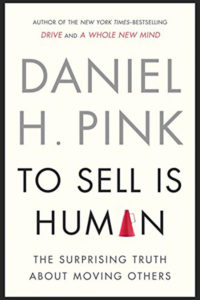
If you’re planned and prepared, you don’t have to spend vast cognitive processing power going, “I’ve got to say this and I’ve got to say that” because you’ve got it all down pat and it’s muscle memory. You know this because you’re very good at what you do. What you can do is you are then fully present because you’re not preoccupied going, “I’m winging it. I want to ask this question and that question. What do I say now? There’s an objection that’s going to come up on price or higher authority. I’ve got another supplier. Timing is not right.” We know that stuff down the path.
When you’ve planned and prepared, you are present. The other thing as well is when you’ve planned and prepared and you’re training like a true professional, the most trusted are trained. Pilots, surgeons, doctors, ambulance, search, and rescue are highly trusted in your Gallup most trusted profession because they train all the time. We just don’t train enough salespeople. Funny enough, sometimes though we’re overtrained and we’re under practice, but that’s the story for another day.
That’s the truth. When I go and I hear my clients say, “They need product knowledge.” Do they really need it?
I love this because I go to conferences, I get the privilege, people will fly me in, I’ll talk to their teams, and they go, “You’ve got two hours to turn the world around.” I said, “No, we’re going to need more than two hours.” I said, “Cut out basic half a day of product training. Let’s talk about sales training and psychology.” First and foremost, it’s understanding the psychology of self, like being self-aware of how you come across, how you receive, and how you’re perceived. If you can master that, that propels you and differentiates you as a salesperson. It builds up on all the good things we were talking about here.
You have to have a sense of self, understand how you come across, what you’re doing, and what you’re giving, and then park the bloody product training or everyone’s product training out. At the end of the day, often people are buying you or buying the person behind the product because commoditization is rife. Psychology is so important to understand, but it all starts with yourself.
I laugh at 15% of our success is technical because you can look stuff up and the product knowledge. If you ask me a question, and I’m like, “That’s a good question about my product. I want to refresh myself because I don’t want to give you the wrong information.” People go, “Okay. Cool.” Technical knowledge is 15% of our success. We think it’s 50% of our success. It’s the craziest thing.
The other thing I challenge people because you said that how people perceive you and do you come from this place of service, it’s part of your bones. I’ll share a quick story. I challenge people to ask people this specific question. I had one of my clients, my niece’s nephew’s friend. Their kids needed internships here in the summer. One of my clients was good friends because she knew I would only bring good kids to the table because I’ll kick their butt if they didn’t show up and do a good job. It’s my reputation.
Anyway, my niece happened to get one of the positions in training and development. I asked them and I was training there. I said, “Can my niece come in?” It’s my training. I want to challenge her comfort zone. She was a VP and she’s a college student. I thought good opportunity for her. They let her come through. In the end, she comes up to me. She did very well. I told her at the beginning, “I’m not going to go easy on you. I want you to challenge yourself. This is going to be an important class for you.” She did great. Everybody in the class loved her. In the end, she comes up to me. She goes, “Aunt Con, it’s you. Do you know what you’re doing up here?” I laughed. She told all the nieces and nephews, “Aunt Con is Aunt Con even at work.”
Here’s the thing, St John. I think we need to be who we are. With my clients, we laugh and they become my family. I go out to dinner with their husbands or their wives. It’s not just about the sale and the business. It’s about the whole relationship for me. I live from that perspective. Whether I’m at home or I’m at work, I am me. I don’t know how to be any other way and that genuineness comes through. That’s why a lot of people choose to work with me, even if I’m a little more expensive because they know what they’re getting. There’s no pretense. There’s no, “What am I getting after I sign this contract?”
Sales Success Starts With Yourself
They’re buying you. That’s the thing. Sometimes the person is the product. Persona is Latin for a mask. A mask in its simplest form is there to protect yourself. People wear different personas. With you, Con, you wear the same mask. It’s the same Connie day in, day out. Whether personal or professional, you are 100%. People buy that vibe.
It’s very important that you understand yourself and your own psychology for you to be believable and relatable. Importantly, understanding how you are being perceived and most importantly, received. You are sending signals all the time by what you are doing. There’s a lot to unpack around truly understanding yourself. All sales success starts with yourself and understanding who you are, what you’re about, what your values are, and what your purpose is. If you want to succeed in sales, you need to know you are in the business of service.

Here’s the irony. A lot of service people are put in sales situations. I’m sure you’ve had that with your training there. You go, “Hold on.” They are wooden pegs in a round hole. They’re a service person, an order taker, a farmer, and not a hunter. The reality is the way we hack that. It’s the same principle. You need to serve before you sell. You’ve got to give until you get because if you’ve got nothing to give, then you have got nothing to give. You’re out.
I think it’s important for people. If you know that you’re in competition with other vendors, whatever you’re selling, you get the business. Throughout my career, I would ask whoever chose me. I said, “I’m really curious. I know there was some stiff competition out there. Why did you choose me?” I’m always so curious because it makes me better and it lets me see what’s important to you. It’s so funny because these corporate organizations will come through and they’ll have a list of why they chose me. The funny thing is sometimes I say, “I didn’t even realize I was doing that.”
By asking that feedback, you’re constantly self-assessing and refining how you want to be seen, how you want to show up, and how you want to be perceived. We have full control over that because it’s you. You have control over yourself. That’s another thing. Ask for that feedback. You’ll be surprised at what you hear. It’s remarkable.
The Importance Of Feedback
I think that’s a really important point for your audience. If you want to get better, feedback is a gift and you’ve got to ask for it. That’s so important the point you made there. Often, we don’t do enough in saying, “Do you mind me asking?” I use this sentence starter in a very polite permission-based way as well. “Do you mind me asking? I’m curious. We had some stiff competition. We’re grateful for landing the business. What was it about us that you particularly liked that got us over the line compared to other vendors?” They will tell you and that is gold because they’re giving you those insights.
If you want to get better, feedback is a gift. You've got to ask for it. Share on XThe other thing that I’m picking up on here because I want to go deeper and get the most I can for your audience. Not only are you seen, but you need to see your prospects. The fundamental is you really want someone to open up and be vulnerable to you like a prospect. I do a lot of prep time and sales observations with my rural reps. You can see the body language. It’s all closed off. It’s all protection.
They’re protecting themselves against loss. The farmer isn’t opening up because they’re not seen, heard, or understood. What’s happening is they’re not seen, heard, or understood. They’re not seen for the specific problem they are and the individual that they are. They’re not heard because they’re constantly being interrupted and it’s an inquisition or an interrogation, not a conversation. They’re not understood because they’re not signaling safety by summarizing.
This is where we go deeper in the training, “Connie, I want to check if I understood what you’ve told me so far. What you’ve said here is basically, we’ve got a yield result here. We want to get here. You’ve tried this. This hasn’t worked. Have I got that right so far?” Saying a summary makes them feel understood. They need to be seen, they need to be heard, and they need to be understood. If you do that, you differentiate yourself from 90% of salespeople.
Stephen Covey’s fifth law of successful people, seek to understand before you’re understood. You have to live by that. It’s so simple.
Understanding Your Prospect
We make sales so complicated. Focus on the fundamental basics first of making sure your prospect feels safe, being planned and prepared, and understanding that you are judged by the quality of your questions. Interestingly, we’re always looking for buyer motives. When we’re selling, we’re on sale as well. That prospect is looking at you going, “What questions are they asking?” Since a little boy, I’ve always been very curious about the world and human behavior, and why people do what they do in behavioral economics and social sciences. I absolutely love learning and it fascinates me.
I want to understand why people do what they do. When someone asks me a question, my automatic reaction is, “I wonder why they’re asking that question. What’s behind there? What’s the underlying driver there?” It’s the same with objections. Someone is objecting around price. The reason they’re objecting around price is there’s an absence of value. We failed to determine the commercial context or worth of the product or service that we’re pitching in.
Before we ever talk about price, we’ll talk about what it is worth. “I can give you a price to make sure I give you the right price. I just need to check out a couple of things first to make sure what I’m offering you is the right thing and let’s put it in its context.” I use that all the time. It is being curious. I’m probably maybe giving too much here, but I’d love to because I’m very passionate about it. You must be more curious than you are critical. Curiosity opens doors and criticism closes them.
You must be more curious than you are critical. Curiosity opens doors, but criticism closes them. Share on XYou go, “They’re not buying off the procurement team. They’re beating us up on price all the time.” When you do that, you close your mind to any sort of learning. When you are curious about, “I wonder why they were doing that. I wonder what happened there.” When we have that sales conversation, “Why did they ask that question? Why was there objection?” It’s okay to ask or when someone is asking, “Do you mind me asking what’s behind that? What made you ask that question?” I’ve asked it in a very soft way and a very safe way that doesn’t threaten the buyer. I’d love to understand a bit more about what was behind that.
You can do that because you’ve already established trust in the relationship because they’re feeling safe with you. You’re just not going to get a deep, rich, vulnerable, and open conversation with a prospect when they don’t feel safe. They’ve got to have psychological safety. This is why psychology is so important in sales.
I love that word, curiosity. Unfortunately, we come in curious and we ask the question, and then we start judging and assuming based on the answer. Part of my process as well is that reflection. “This is what I heard. This is what the expectation is from you. This is what you’re truly seeking. Did I miss anything? Did I misunderstand anything? I’m receiving it in my filters, not in your filters. Let’s make sure we’re on the same page.”
How you phrase it, St John, was beautiful. If you do that one little step, you will eliminate objections because you’re handling them along the way where the person will see the value because you understand the value that they’re looking for. Seek to understand before being understood. Be curious before you start judging and assuming. Assuming is a bad thing. It’s our filter, not the client’s. We are out of time. I want so much more. This is such a great conversation. Everyone, St John has some amazing gifts for you as well. Go to the website, which is RuralSalesSuccess.com. Why don’t you tell them what the free gifts are? There’s a platform of things on there.
It’s a whole goody bag. Connie, thank you so much for having me on. I would’ve loved to talk for more and unpack the psych. If people were interested in what we’re saying, I work in rural, agricultural, agribusiness, and agritech. I’ve got a book to give. It’s How to Succeed in Rural Sales and using sales psychology as your sales superpower. It’s an eBook. It has lots of questions. A lot of it goes a bit deeper into what we’ve got here. It’s free. I usually sell it on Amazon. I’d love to give it to your audience. They can download it. If you’re interested, there’s a podcast link there. I would love to have Connie on my show to talk more, yet ton of resources for you. If you like what you’re hearing, go in there and grab what you want.
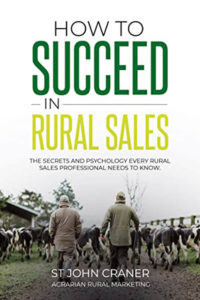
I don’t know if you’ve seen this, but the younger generation listens to podcasts. I’m amazed when I speak or when I teach my corporate clients, and there’s the younger generation. They’ll come to me, “I love that episode with James Clear. I love that episode with St John.” I go, “You listen to my show?” It’s so funny and I’m so honored. They go, “I learned so much. I feel like I’m getting better at sales because of your guests and your conversation.”
Please listen to St John’s podcast, especially if you’re new to sales and in sales for a while. We gain bad habits. These conversations and listening to the guests that St John have is important. It’s a free resource. If you’re driving to work, vacuuming your house, doing the dishes, or mowing the lawn, listen to the podcast. They’re 30 minutes to 40 minutes long. It’s free content that you have the brain working to create these good habits. Thank you so much for sharing about your podcast as well. I think that’s an important resource in addition to the eBook and everything. Thank you so much for being on and for sharing.
You’re welcome. The last thing I’d say to your audience is you must be a continual lifelong learner in sales. Warren Buffett is wealthy for a good reason. The more you learn, the more you earn. Continue to learn with the most trusted trainers. Use resources that Connie is putting out here and all the wonderful guests. It’s an absolute pleasure. I love talking to wonderful people like you.
Back at you. Thank you so much. I hope you will join me weekly as we question, build, and discover together. No matter where you are on your sales journey, there are resources out here to help you. I want to comment before I end the show. St John just said, “Learning is earning.” That is true. Here’s the deal. You’ve just heard some great strategies, exact questions, and how to phrase things. St John gave a lot during this. I highly recommend going back with paper and pencil. Get his book and download it.
Here’s the deal, information is a beautiful thing. If you do nothing with it, it’s simply information. Once you take that information and apply it one piece at a time. Try one little change during our conversation, watch the magic that happens on the backend. It’s remarkable. You have the power to do that.
St John, thank you for being on. Thank you all for tuning in to Changing The Sales Game with me. I am truly honored that you’re on this journey of sales and change with me and my guest. I hope that you are inspired weekly by our conversation and content. I will see you all in the next episode. I love you. Thank you for tuning in.
Important Links
- Agrarian
- Thinking, Fast and Slow
- Eliminate the 5 Layers of Buyer Resistance
- To Sell Is Human
- How to Succeed in Rural Sales
- LinkedIn.com/in/StJohnCraner
- http://www.RuralSalesSuccess.com/
- https://LinkTr.ee/conniewhitman
- https://www.ChangingTheSalesGame.com/communication-style-assessment
- https://ChangingTheSalesGame.mykajabi.com/All-Star-Community
Stalk me online!
- Connie’s Website
- Connie’s LinkTr.ee
- Connie’s #1 International Bestseller Book – ESP (Easy Sales Process): 7-Step to Sales Success
- Download the FREE Communication Style Assessment
- Join our All-Star Community
Subscribe and listen to the Changing the Sales Game Podcast on your favorite podcast streaming service or YouTube. New episodes are posted every week on Web Talk Radio. Listen to Connie dive into new sales and business topics or problems you may have in your business.

 St John is an author, podcast host, and Founder of Agrarian based in New Zealand. He and his company specialize in training and teaching sales teams to perform at a higher level using human-centered psychology. He will share with us the top ways to increase your leads and sales by implementing your buyer’s mindset and tapping into the psychology of selling.
St John is an author, podcast host, and Founder of Agrarian based in New Zealand. He and his company specialize in training and teaching sales teams to perform at a higher level using human-centered psychology. He will share with us the top ways to increase your leads and sales by implementing your buyer’s mindset and tapping into the psychology of selling.